ReMade@ARI
Events from this organizer
-
-
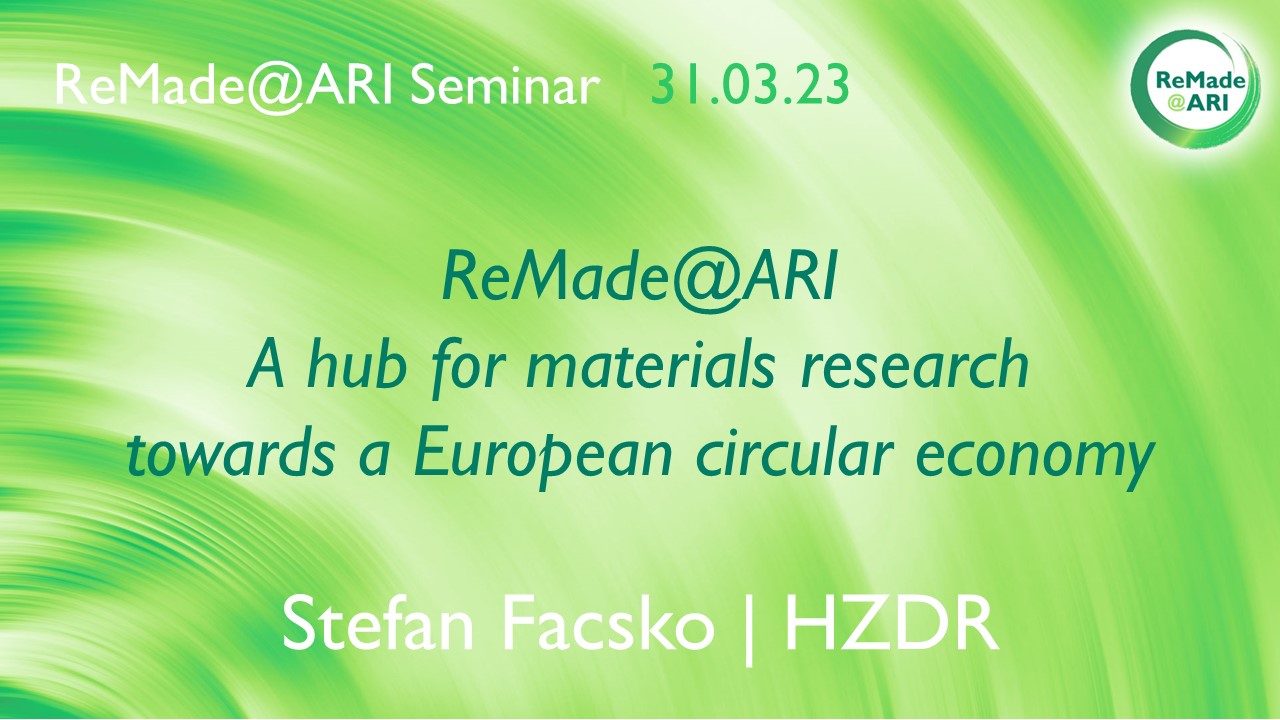 Featured ReMade@ARI Webinars
Featured ReMade@ARI WebinarsReMade@ARI: A hub for materials research towards a European circular economy
Zoom (permanent link)Zoom webinar | Live stream on Youtube Stefan Facsko, Coordinator of ReMade@ARI Ion Beam Center, Institute of Ion Beam Physics and Materials Research, Helmholtz-Zentrum Dresden-Rossendorf e.V., Dresden Germany "Earth Overshoot Day", on which we have consumed more than the sustainable resources available to us, is continuously shifting towards the beginning of a year. In […]
-
-
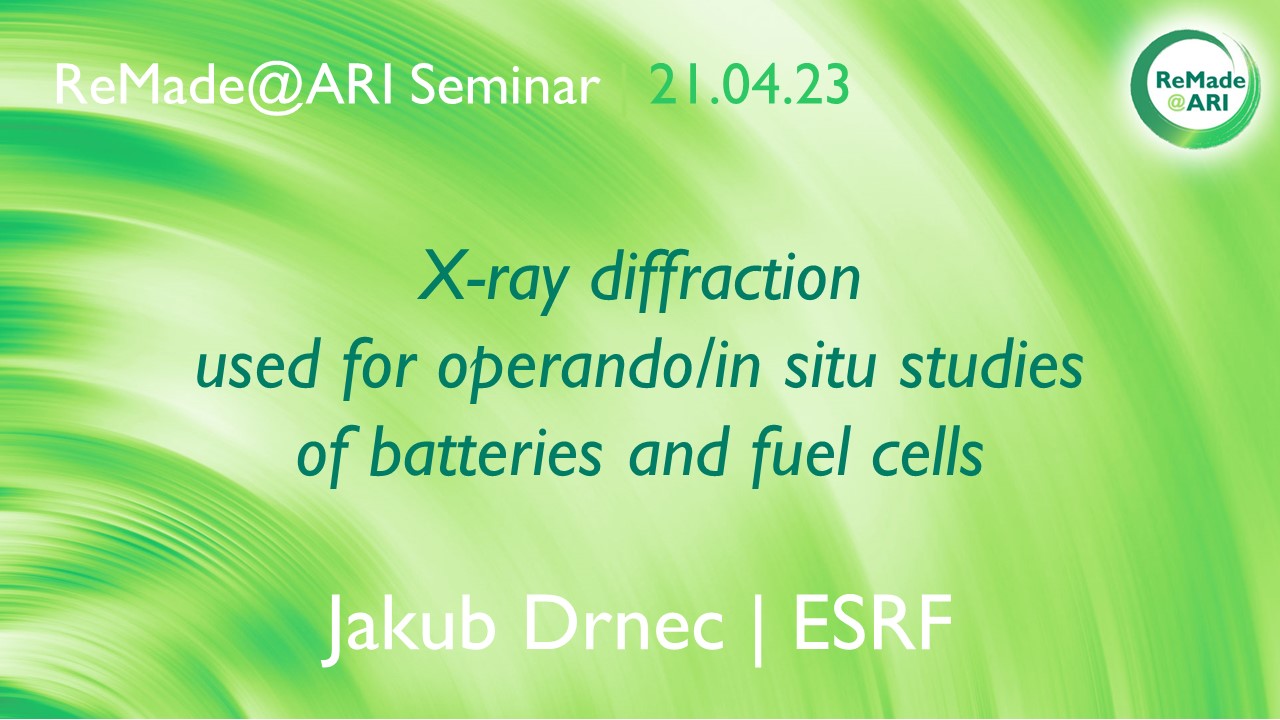 Featured ReMade@ARI Webinars
Featured ReMade@ARI WebinarsX-ray diffraction used for operando/in situ studies of batteries and fuel cells
Zoom (permanent link)Zoom webinar | Live stream on Youtube Jakub Drnec, European Synchrotron Radiation Facility (ESRF), Grenoble, France Complete physico-chemical operando characterization of electrochemical devices in whole, or it’s constituent materials separately, is necessary to guide the development and to improve the performance. High brilliance synchrotron X-ray sources play a crucial role in this respect as […]
-
-
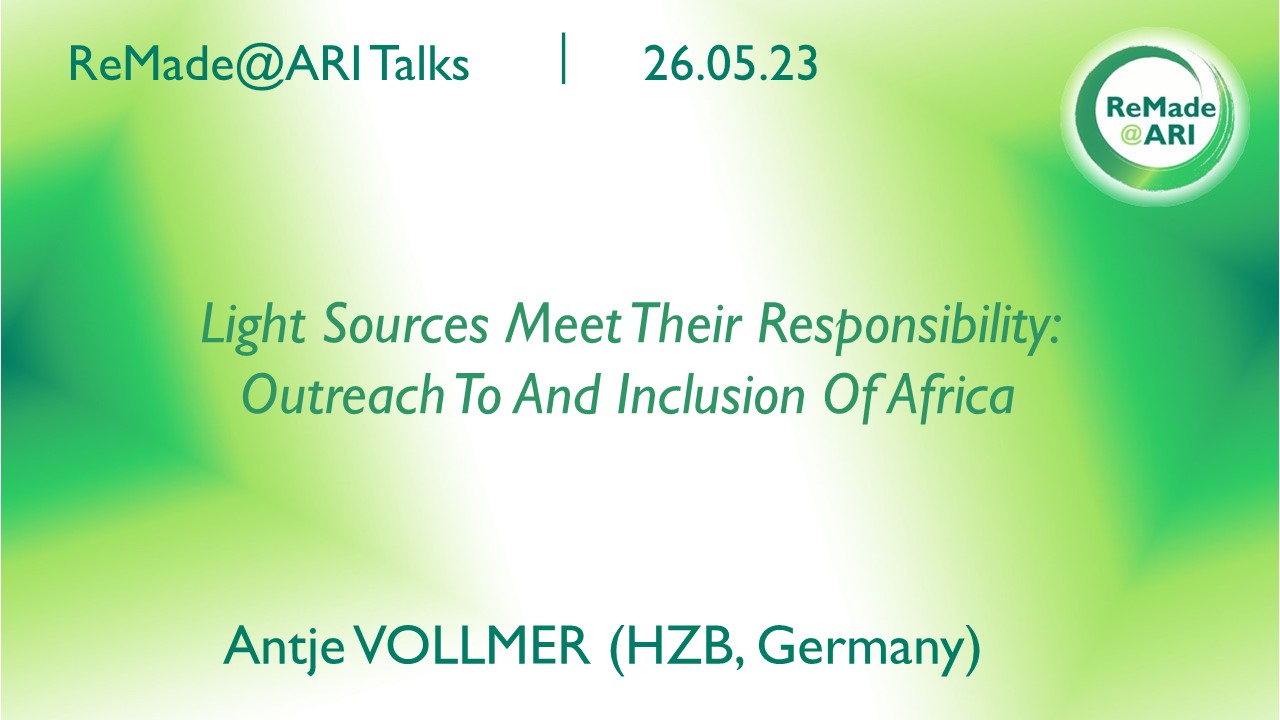 Featured ReMade@ARI Talks
Featured ReMade@ARI TalksLight Sources Meet Their Responsibility – Outreach To And Inclusion Of Africa
Internal ReMade@ARI talk by Antje Vollmer (Helmholtz-Zentrum Berlin für Materialien und Energie (HZB), Germany)
-
-
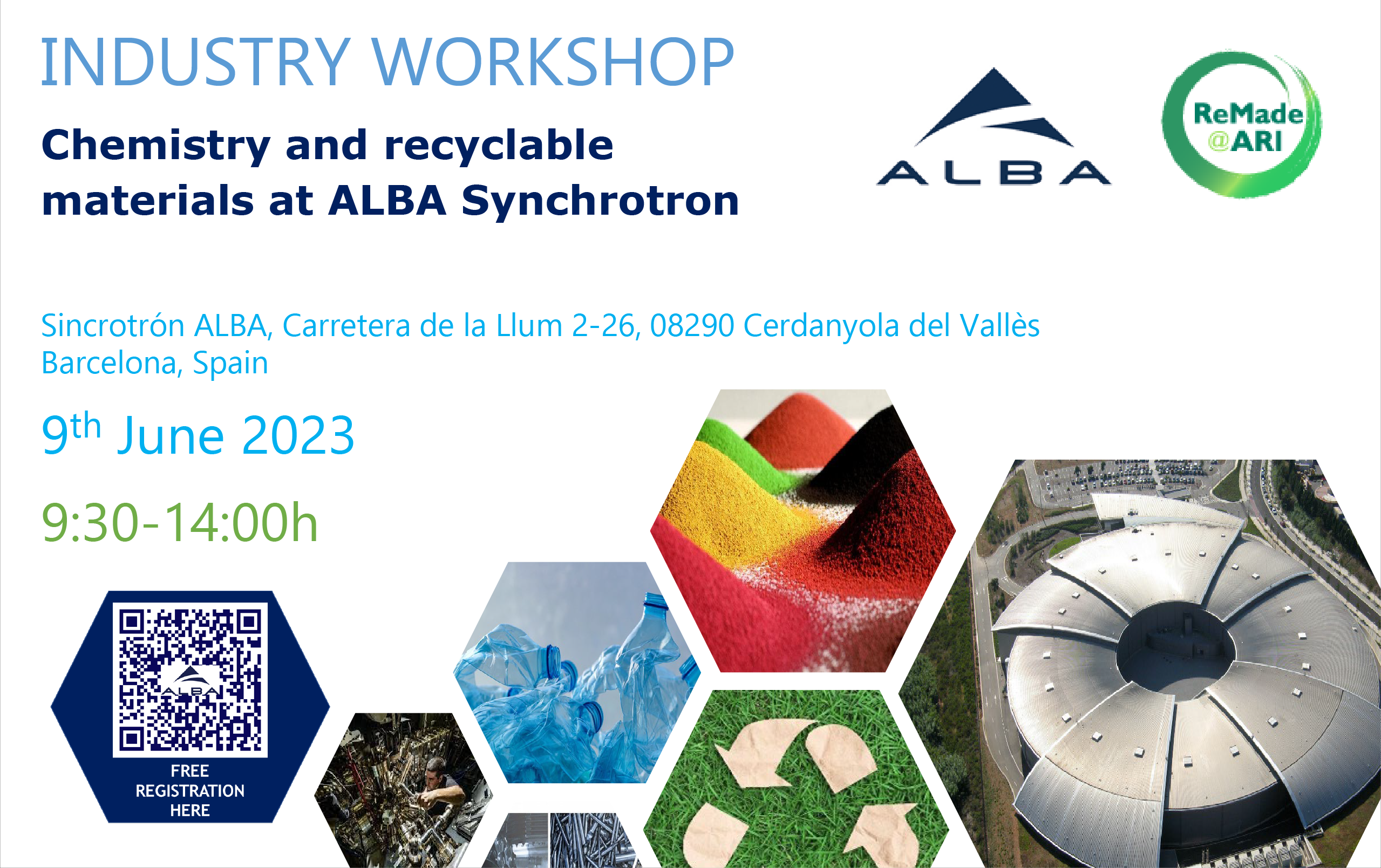 Featured
FeaturedINDUSTRY WORKSHOP – Chemistry and recyclable materials at ALBA Synchrotron
ALBA Synchrotron, Cerdanyola del Vallès, Barcelona, Spain Carretera de la Llum 2-26, Cerdanyola del Vallès, Barcelona, SpainALBA Synchrotron in collaboration with the European project ReMade@ARI which offers free access to small and medium-sized companies, organizes a workshop dedicated to the chemical industry and recyclable materials. In this workshop, we will have the opportunity to learn first-hand how synchrotron techniques are used to research and develop recyclable chemicals, as well as metals, […]
-
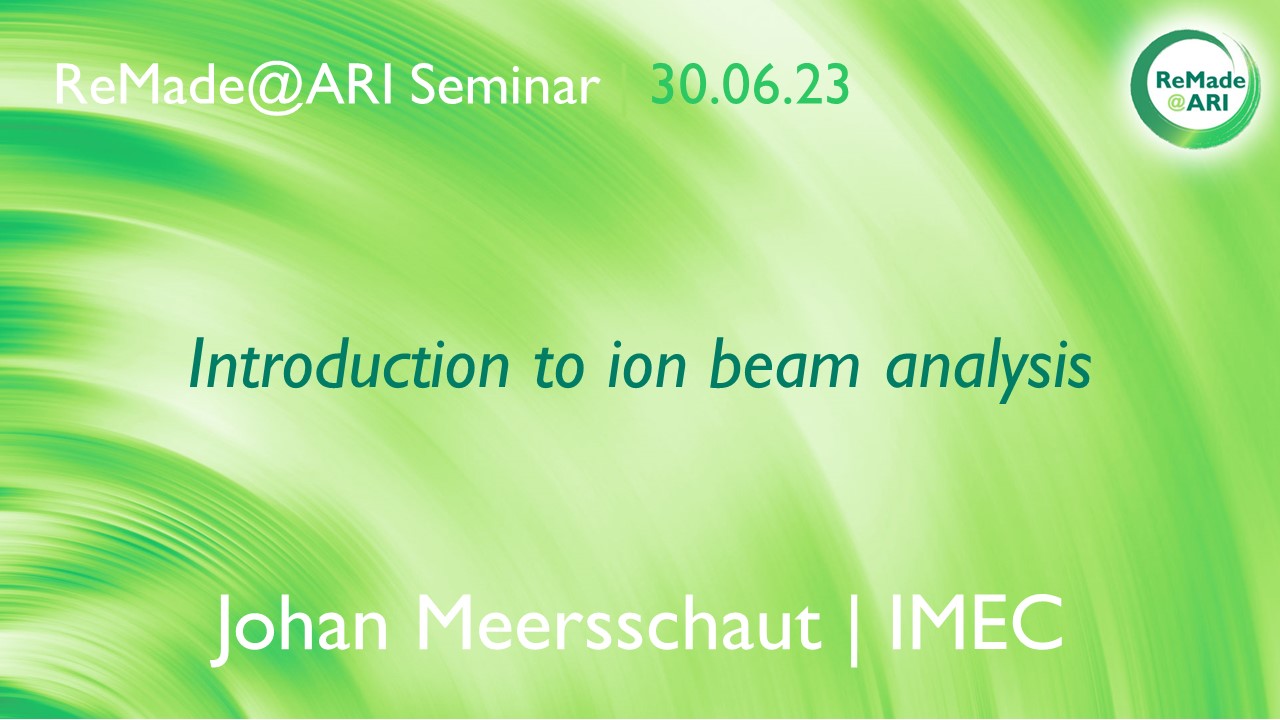 Featured ReMade@ARI Webinars
Featured ReMade@ARI WebinarsIntroduction to ion beam analysis
Zoom (permanent link)Zoom webinar | Live stream on Youtube Ion beam analysis refers to established methods to investigate the material properties by inspecting the interaction of energic ions. The interaction is distinctly different from other probes, like X-rays, electrons, neutrons etc. This enables to probe the properties in a complementary manner compared to other characterization techniques. […]
-
-
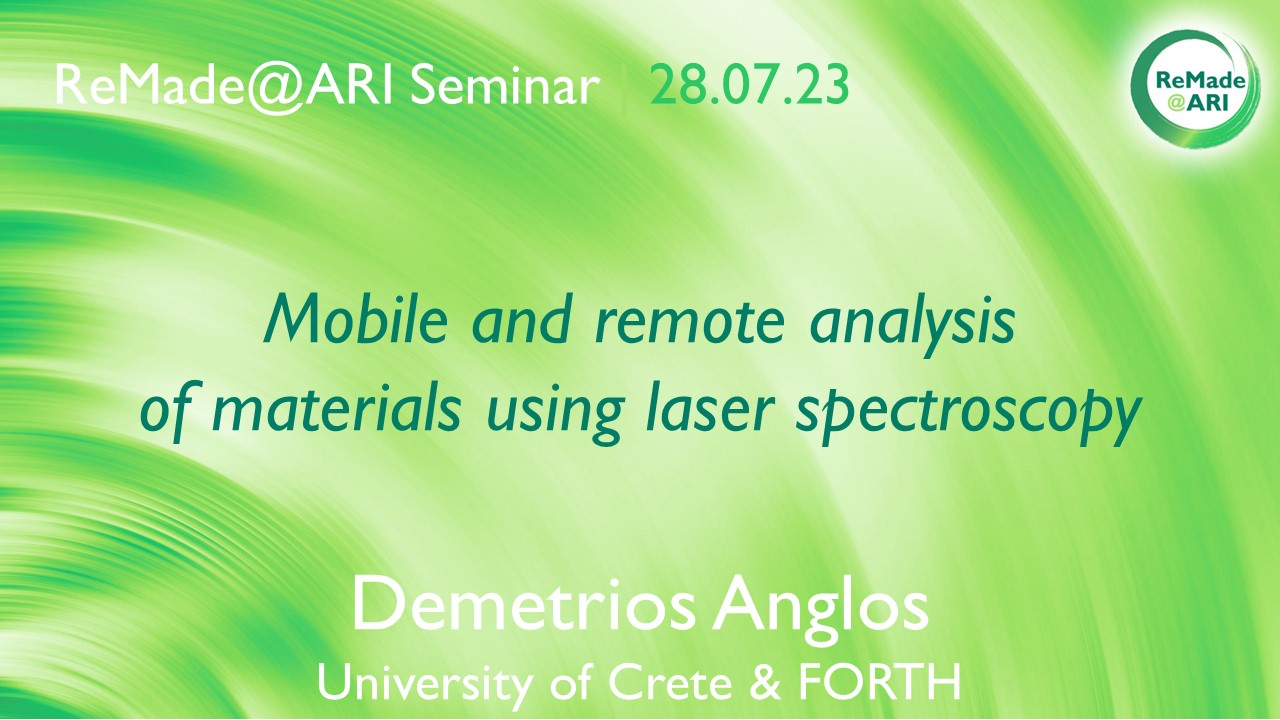 Featured ReMade@ARI Webinars
Featured ReMade@ARI WebinarsMobile and remote analysis of materials using laser spectroscopy
Zoom (permanent link)Zoom webinar | Recording on Youtube Demetrios Anglos Department of Chemistry, University of Crete, Heraklion, Greece and IESL-FORTH anglos@uoc.gr; anglos@iesl.forth.gr Optical technologies, including laser sources, detectors, spectrometers, optical fibers and light collection systems have advanced over the past years in a way that has facilitated engineering of various types of field-deployable spectrometers capable of supporting […]
-
-
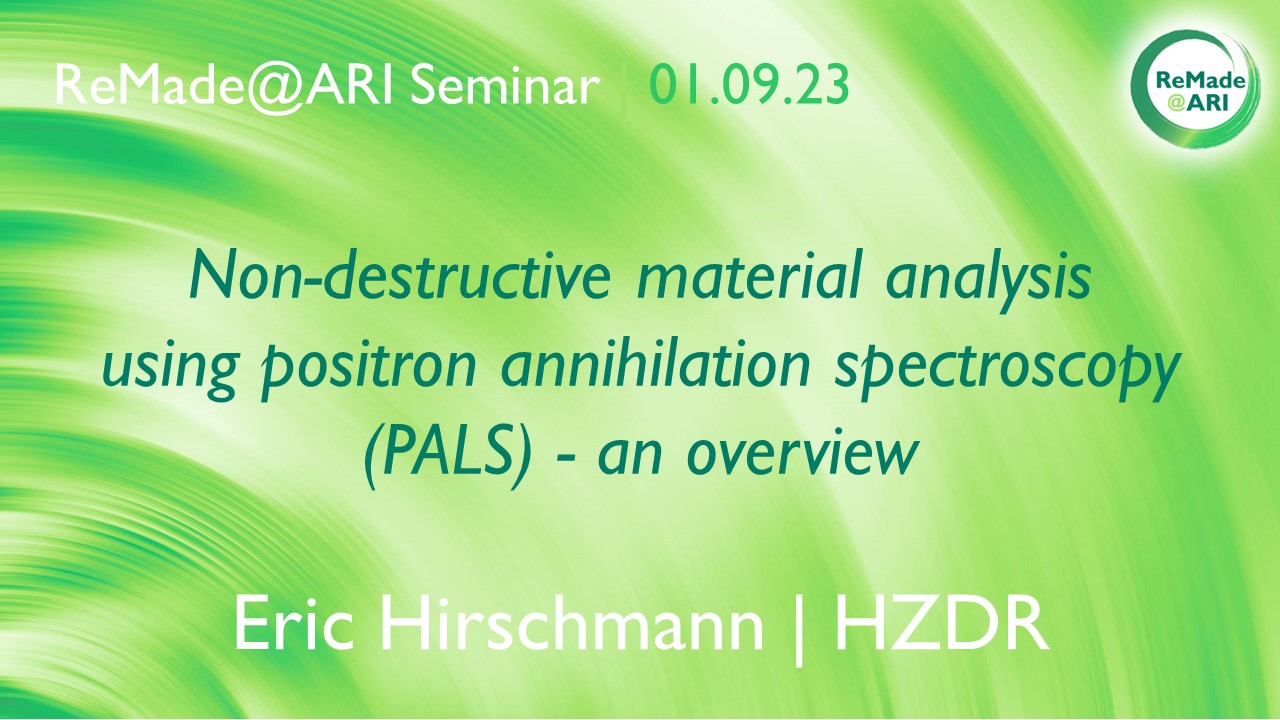 Featured ReMade@ARI Webinars
Featured ReMade@ARI WebinarsNon-destructive material analysis using positron annihilation spectroscopy (PALS) – an overview
Zoom (permanent link)Zoom webinar | Live stream on Youtube Eric HIRSCHMANN Institute of Radiation Physics Helmholtz-Zentrum Dresden - Rossendorf (HZDR) The positron research infrastructure (pELBE) at the ELBE linear accelerator at the HZDR is a collection of methods and instruments that characterize defects, determine open volumes and investigate open or closed microporous systems using positron annihilation spectroscopy. […]
-
Featured
Using Research infrastructures to solve industrial challenges for the circular materials economy
Industriens Hus H. C. Andersens Blvd. 18, 1553 København, Denmark Andersens Blvd. 18,, 1553 København, DenmarkThe transition to a circular economy requires companies to adopt sustainable and resource-efficient industrial practices. By shifting from the traditional linear "take-make-dispose" model to a circular one that promotes recycling, reusing, and remanufacturing, industries can reduce waste, conserve resources, and minimize environmental impact. As part of our European project, that brings together research infrastructures and […]
-
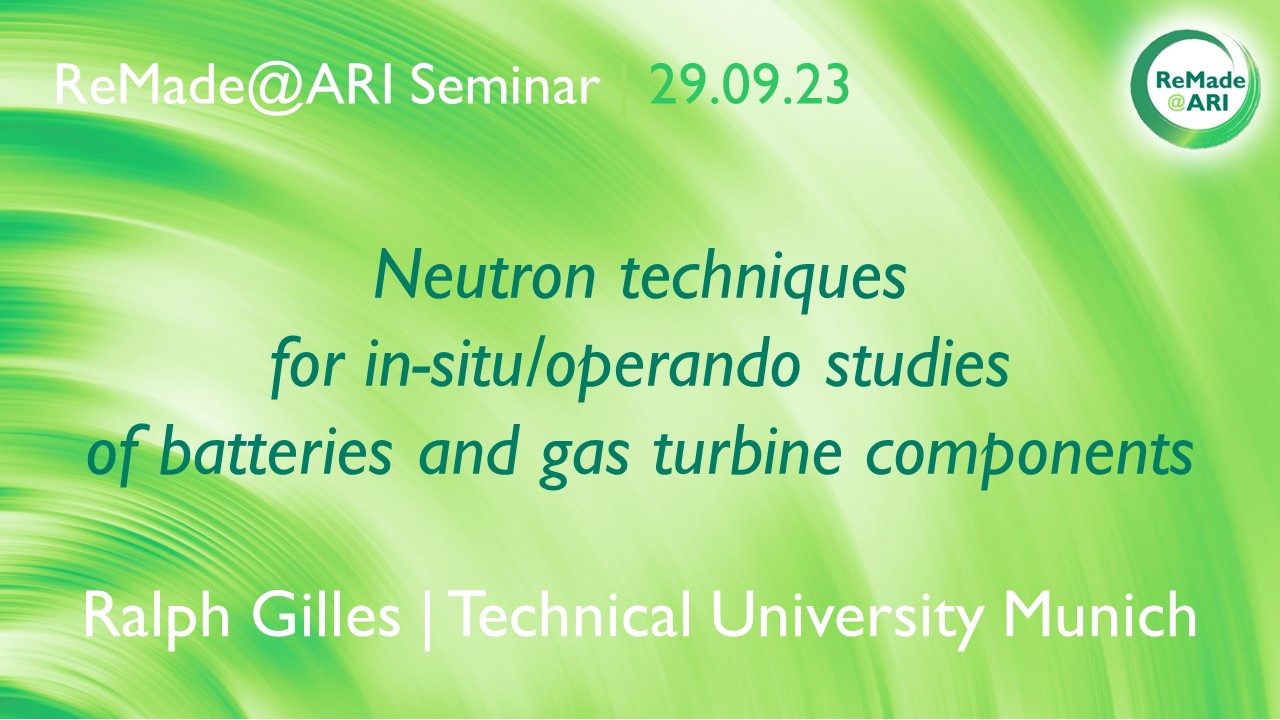 Featured ReMade@ARI Webinars
Featured ReMade@ARI WebinarsNeutron techniques for in-situ/operando studies of batteries and gas turbine components
Zoom (permanent link)Zoom webinar By Ralph Gilles, Technical Univeristy of Munich, Germany Rechargeable batteries play an important role in the Green Deal activities. Using sophisticated methods, a deeper understanding of the processes in electrochemistry is gained in order to further improve battery components and complete cells. In particular, non-destructive studies examining Li-ion batteries in situ/operando represent a […]
-
-
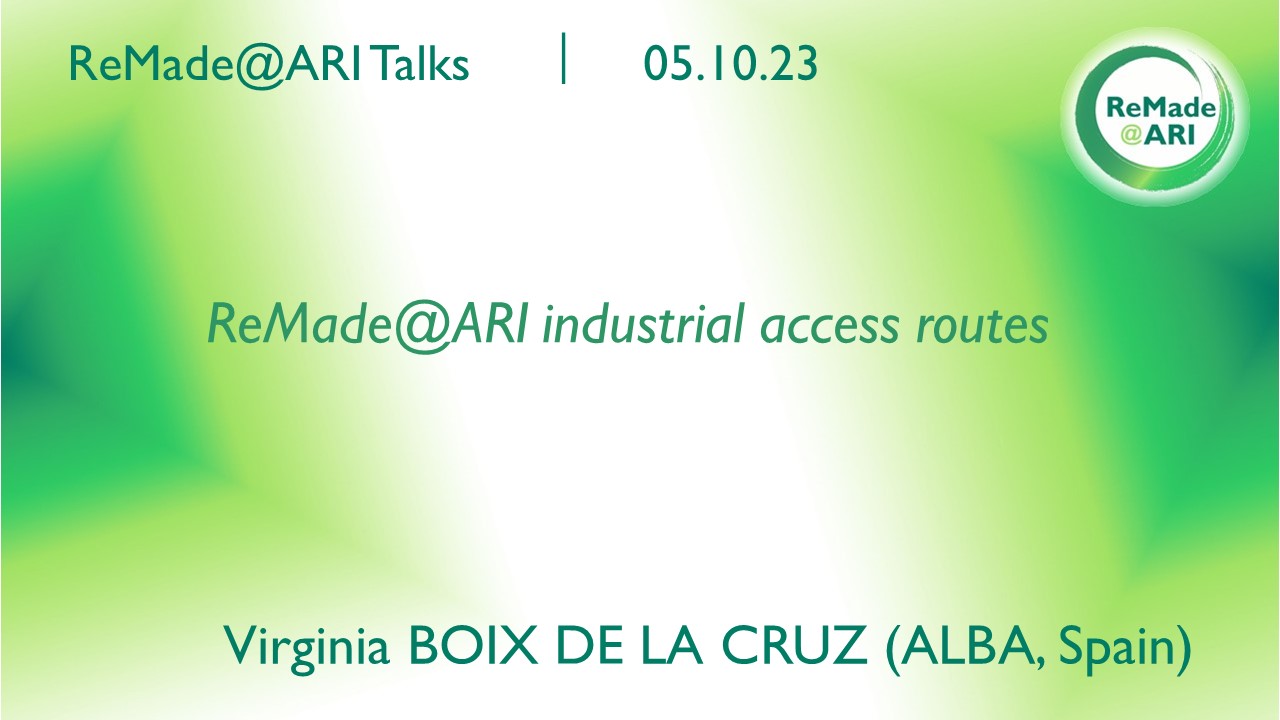 Featured ReMade@ARI Talks
Featured ReMade@ARI TalksReMade@ARI talks: Industrial Access routes
Internal ReMade@ARI talk by Virginia Boix de la Cruz (ALBA synchrotron, Cerdanyola del Vallès, Barcelona, Spain) In this talk, we will present the two tailored industrial accesses, ReMade-SME and ReMade-IND: for whom they are intended for, what they cover, how the submission process works and what effort it requires from you as a facility. After […]
